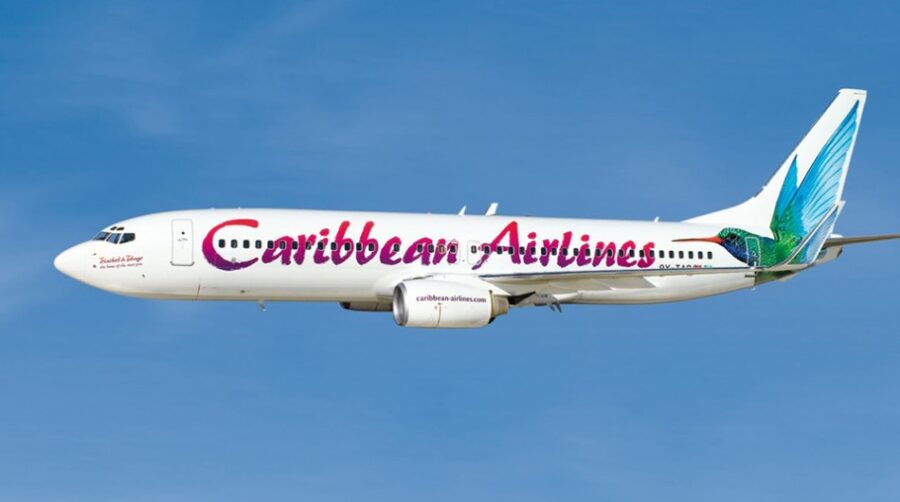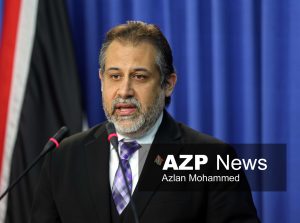PORT OF SPAIN – The state-owned Caribbean Airlines (CAL) says it “categorically rejects” any suggestion that safety is being compromised, and reassures the travelling public that safety remains the foundation and number one priority of its operations.
In a statement, CAL said that it had noted a statement issued by the Trinidad and Tobago Airline Pilots Association (TTALPA) regarding the emergency landing of flight BW1541 on Monday this week from Tobago.
Finance Minister Colm Imbert Tuesday said that fuel supply to the left engine had forced the airline to make an emergency landing at the Piarco International Airport after passengers were instructed to assume the crash position after the pilot had declared an emergency.
Imbert, responding to a question in the Senate from Opposition Chief Whip, Wade Mark, said said information provided to him by the state-owned CAL indicated there was a problem with the measurement of fuel for the plane’s left engine and there was nothing wrong with the plane itself.
“Based on what I am seeing in this report it appears there was a problem with fuel for one of the engines and one of the engines basically ran out of fuel which caused the captain to make the mandatory announcement to the passengers that they should get into the position that is recommended for an emergency landing”.
He told legislators that the plane has been taken out of service and that the pilot and two technicians, who would have knowledge about the fuel supply to the plane’s engines, are also not on active duty at this time.
CAL said that there were 68 passengers and four crew members were onboard.
In its statement, TTALPA said that it has been raising alarms over risks linked to CAL’s ATR aircraft fleet for over a decade, highlighting multiple safety-related near misses in recent months as a clear signal for urgent intervention.
TTALPA said that while it would be premature to speculate on the specifics, the frequency of such occurrences cannot be ignored.
“This incident is part of a broader trend that demands immediate collaboration to safeguard lives,” TTALPA said, calling for an emergency meeting with CAL’s leadership and aviation regulators to address concerns surrounding operational protocols and maintenance practices.
But CAL said that it “operates in strict compliance with local and international aviation safety regulations and is subject to rigorous oversight from multiple independent local and international regulatory bodies”.
It said that the airline has “consistently passed all required audits, and importantly, it is an approved FAA (Federal Aviation Administration) repair station in accordance with the specified FAA capability listing, meaning that its maintenance and engineering department has been certified by the FAA as having the technical expertise to perform repairs, inspections, and alterations on aircraft and aircraft components, meeting strict international aviation standards”.
It said in line with the industry’s best practices and regulatory requirements, following the emergency landing on January 27, “Caribbean Airlines has fully activated its operational response protocols, including immediately removing all relevant personnel from active duty pending the outcome of investigations” and “cooperating fully with the authorities to conduct comprehensive internal and external investigations.”

CAL said it “considers TTALPA’s assertions to be entirely reckless, and in no way in the best interest of the airline, its stakeholders, and the valued customers it serves.
“Caribbean Airlines assures that it remains steadfast in upholding the highest standards of aviation safety, as demonstrated by its strong safety record and ongoing commitment to regulatory excellence.” (CMC)
![]()














